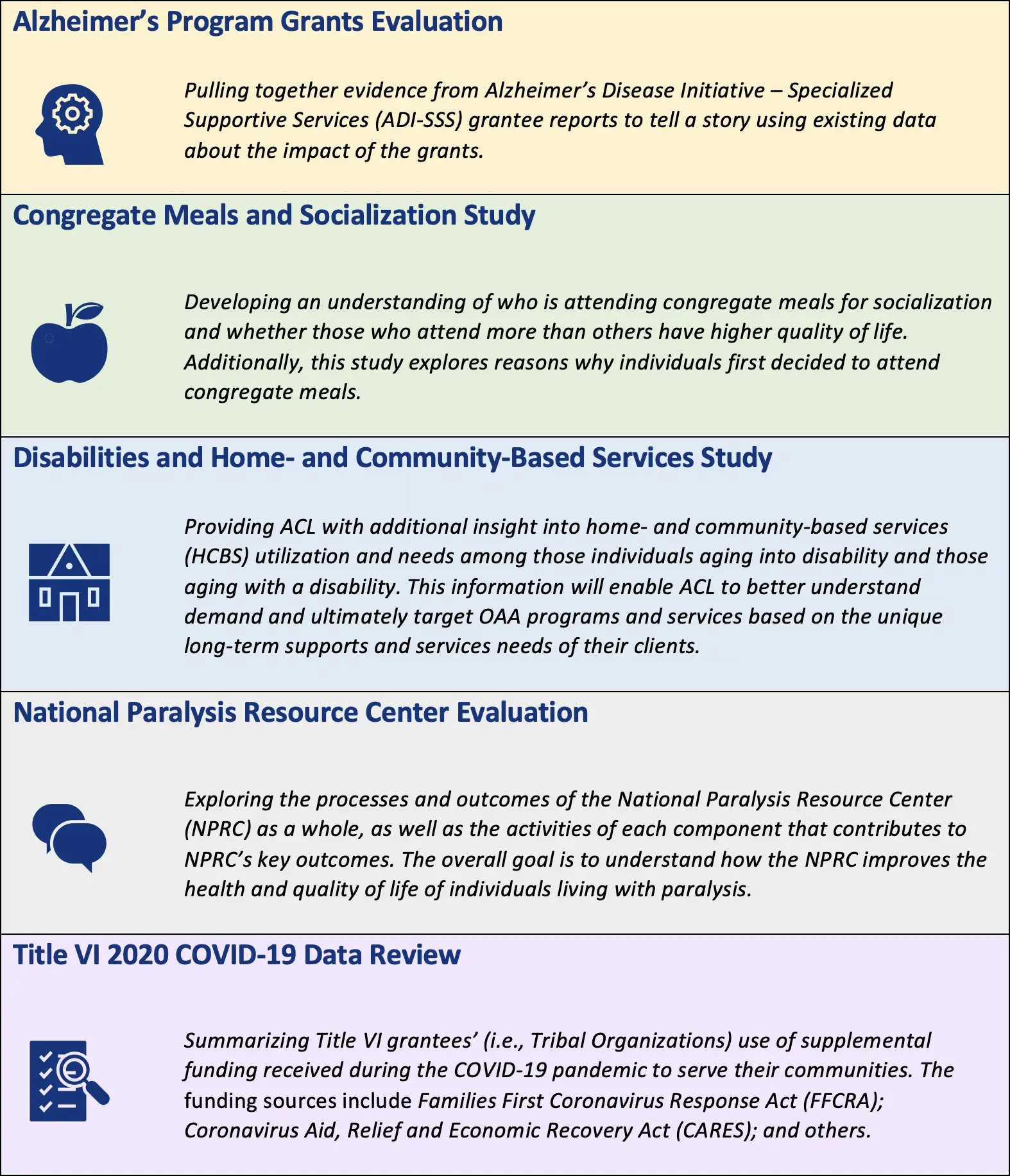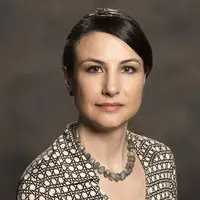Providing evidence as to whether older adults, people with disabilities, and their caregivers are served effectively through Administration for Community Living (ACL) programs
Objective
To research and evaluate several Administration for Community Living (ACL) programs that support the needs of older adults, people with disabilities, and their caregivers over a 5-year period.
Approach
We work with ACL staff to determine the most appropriate research and evaluation methods to analyze the impact of various aging and disability programs. These methods include data extraction and analysis, environmental scans, key informant interviews, focus groups, surveys, secondary data analysis, and model estimation.
Impact
Using our findings, ACL is improving their existing programs to better meet the needs of the populations they serve.
Aging, Disability, and the Administration for Community Living
Almost 17% of the United States population is age 65 or older. In addition, about 20% of Americans live with a disability. Historically, older adults and people with disabilities often were relocated to facility care settings, even if they wished to remain in their prior home environments. This practice denied individuals the right to choose where, how, and with whom they wished to live.
Formed in 2012, the Administration for Community Living (ACL) supports an array of services that enable older adults and people with disabilities of all ages to live independently and engage fully in their communities. ACL houses the Administration on Aging and the Administration on Disabilities, supporting numerous federally funded initiatives. These initiatives include both Older Americans Act (OAA) and Americans with Disabilities Act (ADA) programming.
Evaluating Aging and Disability Programs
RTI International (RTI) was awarded the ACL Office of Performance and Evaluation Rapid Cycle Research and Evaluation contract in 2020. Since then, RTI has worked across ACL to evaluate aging and disability programs, ensuring that older adults and people with disabilities are served effectively.
RTI staff bring a wide variety of skills to the task, including:
- expertise in the fields of aging and disability programs and policies
- quantitative and qualitative research and evaluation methods
- data visualization and dissemination
Under this contract, RTI is completing dozens of unique aging and disability projects ranging in length from 3 months to multiple years. During each two-year performance period, ACL identifies topics of interest and statements of work. RTI responds with:
- Workplan development
- Completion of needed data collection and analysis
- Final reporting
Key Projects: Different Goals Require Different Approaches

RTI Findings Provide Evidence for Policymaking and Program Improvement
As mandated in the Foundations for Evidence-Based Policymaking Act of 2018, ACL established a Learning Agenda and highlighted areas to which rapid cycle research and evaluation can contribute. The Learning Agenda provides a starting point for framing research and evaluation activities relevant to ACL and its stakeholders.
RTI’s research and evaluation activities provide ACL evidence as to whether their aging and disability programs are effectively reaching the right people and highlight areas for continuous quality improvement. Using RTI findings, ACL is improving their existing programs to better meet the needs of the populations they serve.
Learn more about RTI's Public Health and Well-Being research.
- Administration for Community Living







